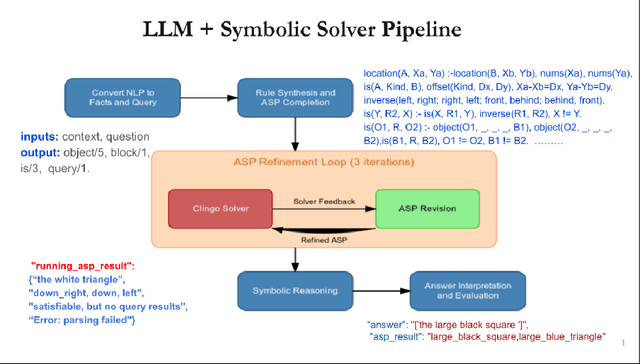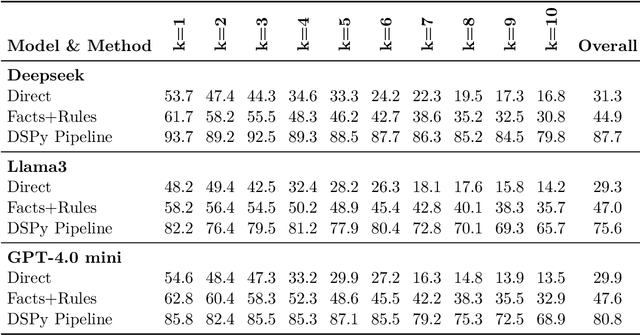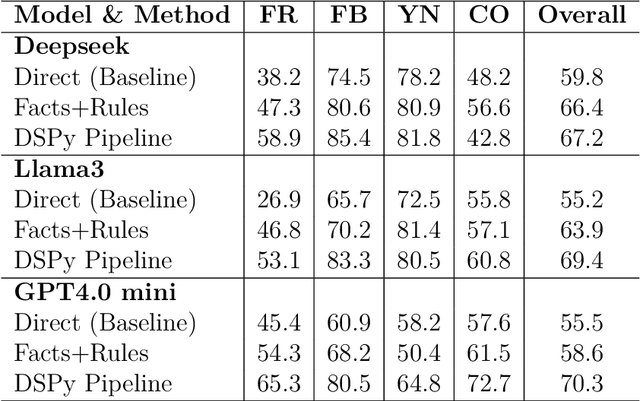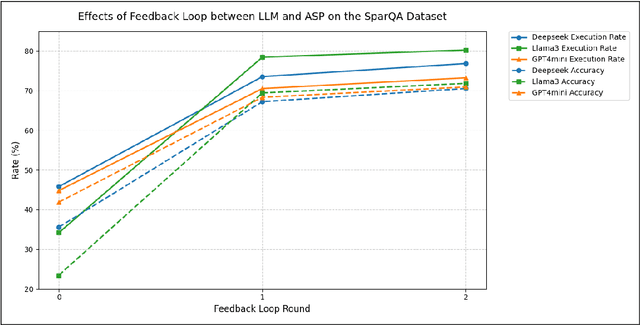Dspy-based Neural-Symbolic Pipeline to Enhance Spatial Reasoning in LLMs
Paper and Code
Dec 12, 2024



Large Language Models (LLMs) have demonstrated remarkable capabilities across various tasks, yet they often struggle with spatial reasoning. This paper presents a novel neural-symbolic framework that enhances LLMs' spatial reasoning abilities through iterative feedback between LLMs and Answer Set Programming (ASP). We evaluate our approach on two benchmark datasets: StepGame and SparQA, implementing three distinct strategies: (1) direct prompting baseline, (2) Facts+Rules prompting, and (3) DSPy-based LLM+ASP pipeline with iterative refinement. Our experimental results demonstrate that the LLM+ASP pipeline significantly outperforms baseline methods, achieving an average 82% accuracy on StepGame and 69% on SparQA, marking improvements of 40-50% and 8-15% respectively over direct prompting. The success stems from three key innovations: (1) effective separation of semantic parsing and logical reasoning through a modular pipeline, (2) iterative feedback mechanism between LLMs and ASP solvers that improves program rate, and (3) robust error handling that addresses parsing, grounding, and solving failures. Additionally, we propose Facts+Rules as a lightweight alternative that achieves comparable performance on complex SparQA dataset, while reducing computational overhead.Our analysis across different LLM architectures (Deepseek, Llama3-70B, GPT-4.0 mini) demonstrates the framework's generalizability and provides insights into the trade-offs between implementation complexity and reasoning capability, contributing to the development of more interpretable and reliable AI systems.
 Add to Chrome
Add to Chrome Add to Firefox
Add to Firefox Add to Edge
Add to Edge